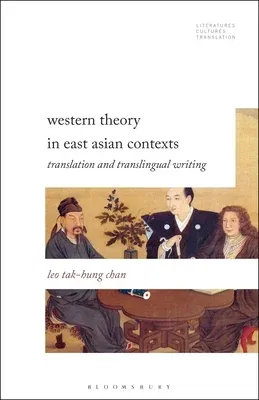Leo Tak-Hung Chan
(Author)Western Theory in East Asian Contexts: Translation and Transtextual RewritingPaperback, 12 November 2020

Qty
1
Turbo
Ships in 2 - 3 days
Only 2 left
Free Delivery
Cash on Delivery
15 Days
Free Returns
Secure Checkout

Part of Series
Literatures, Cultures, Translation
Print Length
248 pages
Language
English
Publisher
Bloomsbury Academic
Date Published
12 Nov 2020
ISBN-10
1501327828
ISBN-13
9781501327827
Description
Product Details
Author:
Book Format:
Paperback
Country of Origin:
US
Date Published:
12 November 2020
Dimensions:
23.11 x
15.75 x
2.03 cm
ISBN-10:
1501327828
ISBN-13:
9781501327827
Language:
English
Location:
New York
Pages:
248
Publisher:
Weight:
716.68 gm